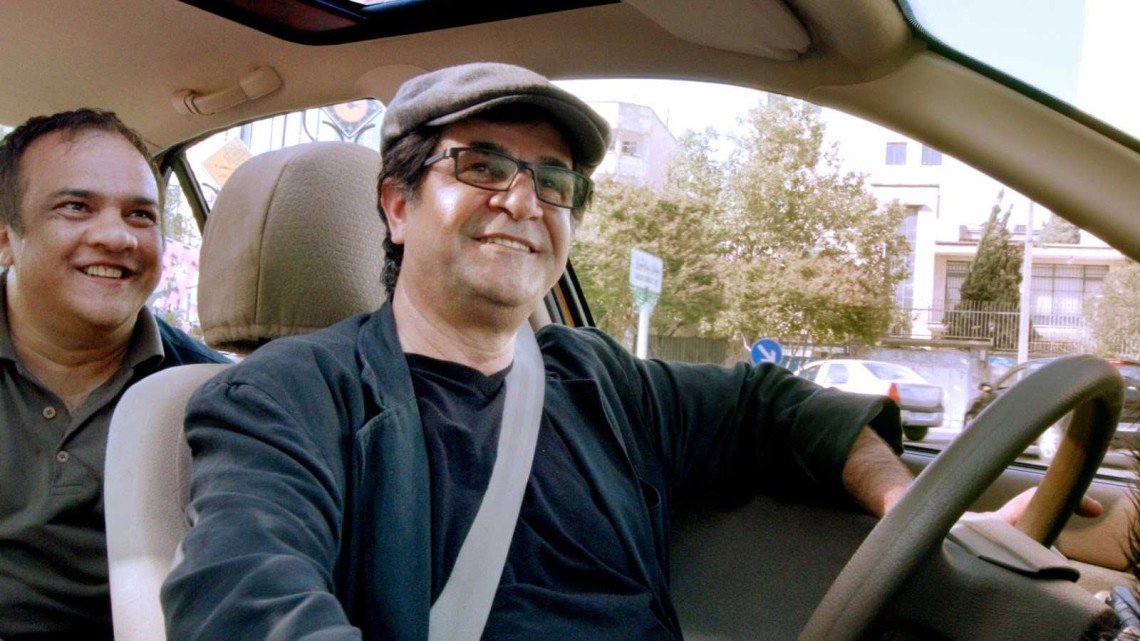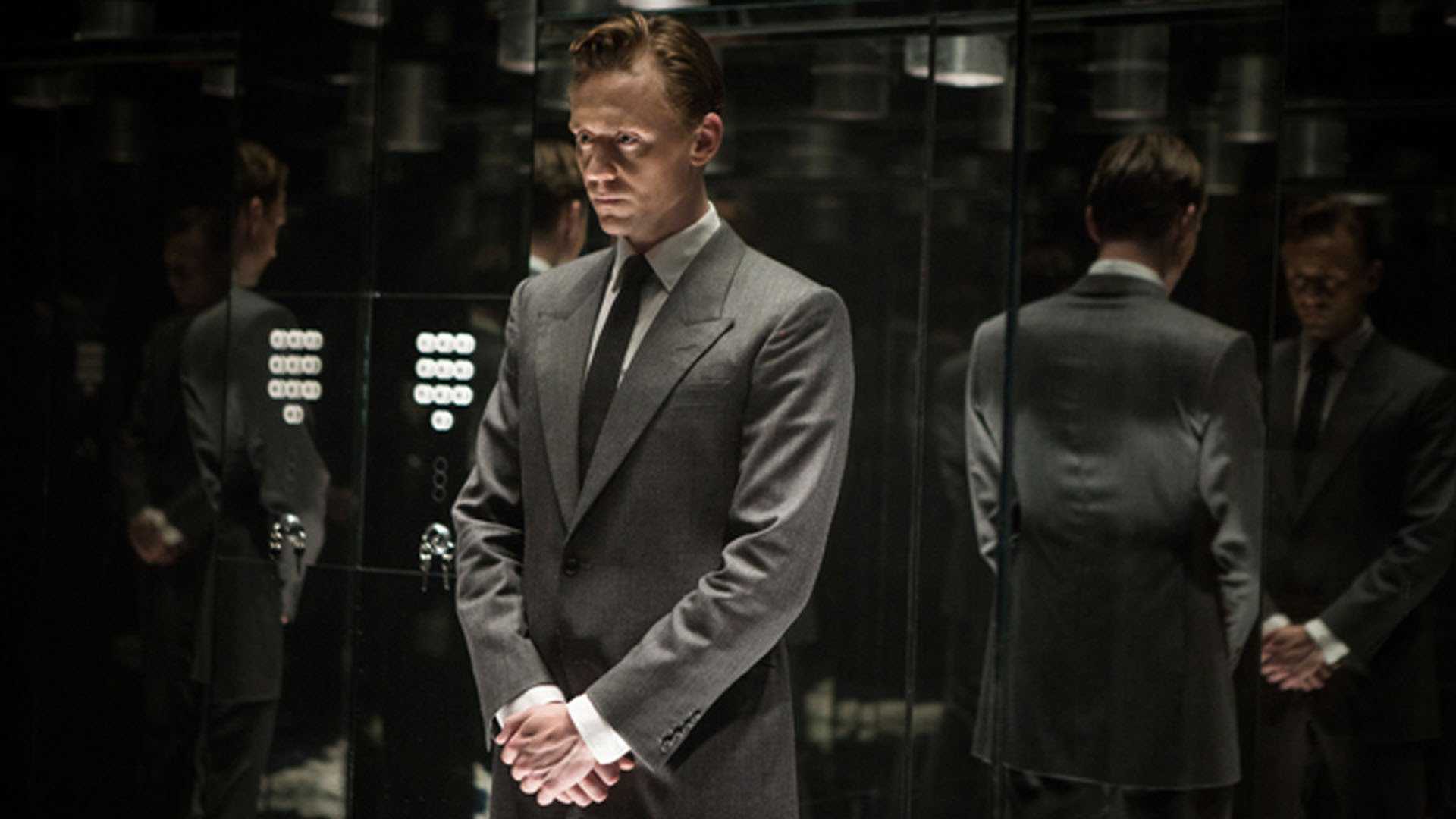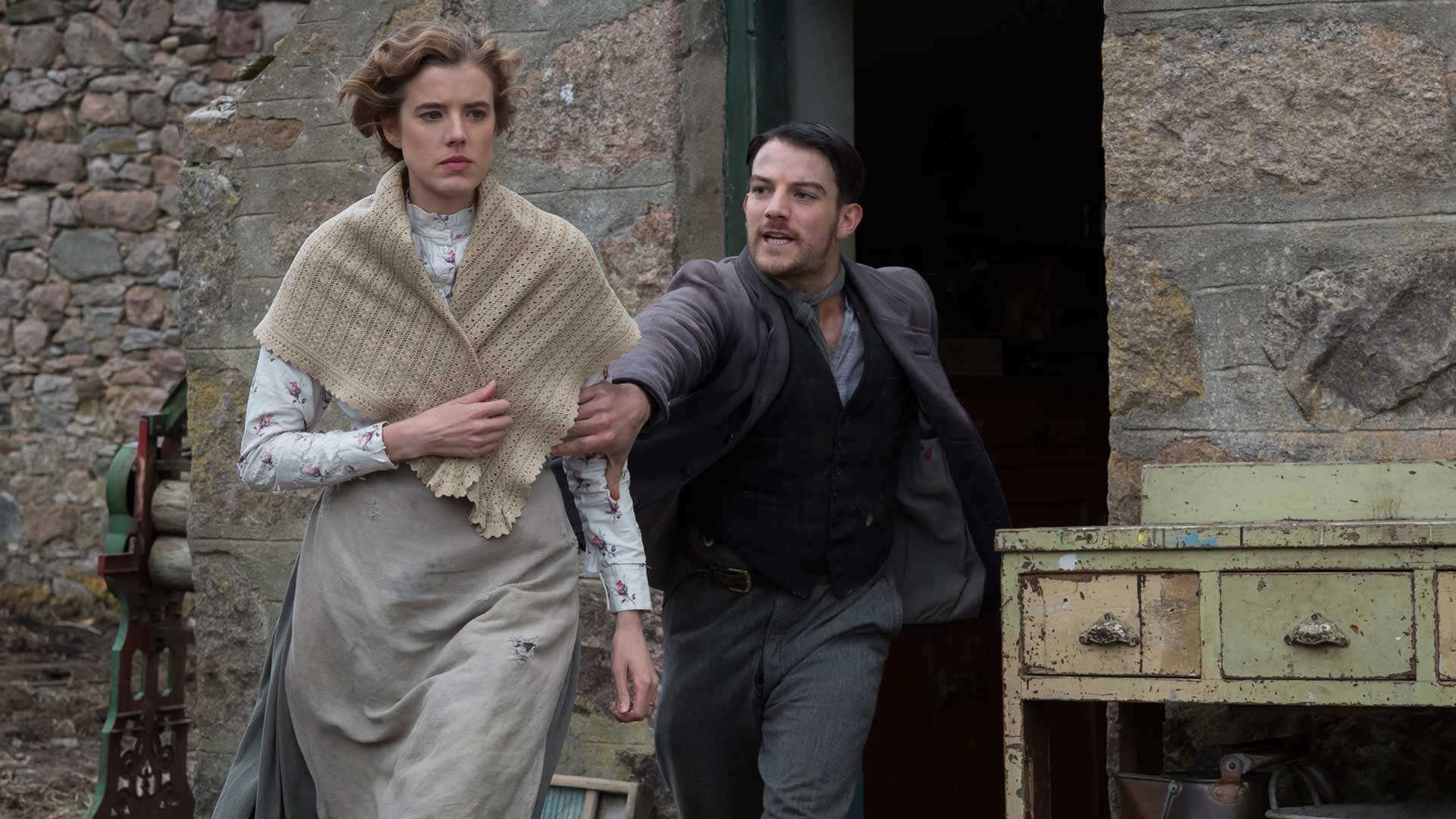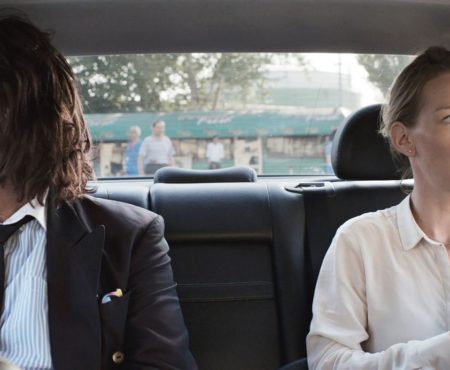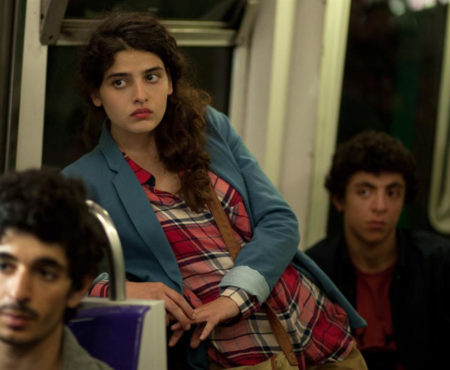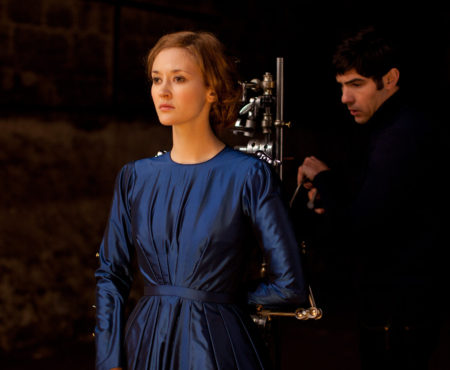The world is changed. We feel it in the water. We feel it in the earth. We smell it in the air. That’s right, it’s festival season in the world of film. The Telluride Film Festival just wrapped up over the weekend, which can only mean one thing: the Toronto International Film Festival, otherwise known as TIFF, is coming straight for us. TIFF 2015 begins this Thursday, and, as with previous years, a number of our writers will be attending and reporting back what they see about all manner of new and exciting films. In fact, our editors–Tina Hassannia, Kenji Fujishima, and Nick McCarthy–are so excited that they whipped up this preview of 12 (and 1/2) films playing at TIFF in the days to come. Keep an eye out for the rest of our TIFF coverage; consider this the amuse-bouche.
Afternoon
An entire film consisting of a single conversation between two people is perhaps not most people’s idea of a thrilling time at the movies. But of course, Louis Malle, Wallace Shawn and André Gregory offered one counterexample back in 1981 in My Dinner With André. And when the people talking to each other are Taiwanese filmmaker Tsai Ming-liang and his constant muse Lee Kang-sheng, as is the case in Tsai’s latest film, Afternoon, then the promise is thick indeed of something revelatory peeking through all the chatter. Naturally, this may matter more to hardcore cinephiles than to most regular moviegoers; as someone who consider Tsai to be one of the greatest current living filmmakers, however, the prospect of basking in the shared company of these two artists is enough to fill this writer with mouth-watering excitement. — Kenji Fujishima
Anomalisa
As with Wes Anderson and his fabulous Fantastic Mr. Fox, singular filmmakers have a way of finding new inspiration within new forms. Here, Charlie Kaufman, along with co-director Duke Johnson, experiment with slow-motion animation to portray a complicated love story of alienation and unique modes of communication. Given the novel approach, Kaufman is tasked with the job of reworking his prominent themes of anxiety, artistic creation, and self-reflexivity via poignant puppetry and quixotic tableaux. Above all, Kaufman’s bittersweet understanding of romance will…wait, holy hell—we’re getting a new Charlie Kaufman joint and it already has a badass pun in the title. Let’s all take a moment of silence to reflect on that lest we melt away from exceeding anticipation. — Nick McCarthy
Arabian Nights
When a festival has a slate of films as massive as TIFF does, it’s difficult to prioritize an ambitious three-part epic that clocks in at over six hours. But if Miguel Gomes can make a film as masterful as 2012’s bifurcated Tabu, trust that the puckish Portuguese director can conjure an indelible cinematic experience. Gomes appropriates the tri-structure of Scheherazade’s One Thousand and One Nights for this series and twists the source material to further explore his obsession with fiction vs. fact and the turbulent history of Portugal. A chain-smoking elderly couple, a rowdy rooster, mermaids, and a ghost dog make up part of the cuckoo cast of characters in this eclectic triptych, which is delineated by evocative subtitles such as The Restless One, The Desolate One, and The Enchanted One, respectively. Creating a surrealist modern fable out of a classical storytelling paradigm may seem incongruous and risky, but Gomes’ films tend to exist within paradoxes. They’re formally rigorous yet playful, both macrocosmic and microcosmic, and exude qualities both quotidian and fantastical. — Nick McCarthy
Chevalier
The absurdity and immaturity of masculine egoism, as seen through a female director’s perspective. That could describe Claire Denis’ piercing Beau Travail, as well as the new film from Greek filmmaker Athina Rachel Tsangari (indeed, reviews are already making the comparison to Denis’ masterpiece). In Chevalier, several male friends on a yacht engage in a competition of sorts that escalates from a simple series of rote challenges (e.g. who can finish cleaning something the fastest) to judging each other on everything–sleep posture, smoking, and dick size. One can only imagine how this might play out–absurdist humour must be its saving grace, no doubt–though it’s difficult to ascertain how that kind of humour would translate for a North American audience. — Tina Hassannia
The Chickening
Not to be confused with an episode in the first season of Orange is the New Black, this 5-minute short film in the Midnight Madness program at least wins the contest for pluckiest title. Canadian co-directors Davy Force and Nick DenBoer create an animated world in which a young boy is fascinated by his father’s new job at a fictional confabulation of the “largest fast-food and entertainment complex in all of North America.” Expect chaos to ensue while the filmmakers “peck” fun at our consumerist tendencies. — Nick McCarthy
High-Rise
With his background in psychological horror and his sharp perspective on British class divisions, Ben Wheatley is an apt directing choice for the movie adaptation of J.G. Ballard’s horrifying dystopia of the same name–that is of course, not counting Nicolas Roeg, who was originally tapped to direct the film in the 1970s, when the book first came out. It will be interesting to see how Wheatley’s vision of Ballard’s tale–the breakdown of civilization in a microsociety, one set entirely in a condominium–translates to today’s age, when the kinds of new modernism deemed ominous in the 1970s are commonplace today. At any rate, having Tom Hiddleston, Elisabeth Moss, and Jeremy Irons (as architect Anthony Royal) star in the project make it sound that much more intriguing. — Tina Hassannia
The Lobster
From the moment Dogtooth barreled onto the film festival circuit in 2009, Greek auteur Yorgos Lanthimos has been on the radars of cinephiles hankering for absurdism and social critique. With his first English-language and more patently satirical film, The Lobster, Lanthimos turns his attention to the cultural norm of cohabitation. Set sometime in the near future, single citizens are rounded up at The Hotel and forced to find a life mate within 45 days or else they’ll be turned into an animal of their choice. Stacking the deck with well-known actors such as Colin Farrell, Rachel Weisz, Ben Whishaw, Olivia Coleman, John C. Reilly, and Lea Seydoux, Lanthimos is sure to flip over aces amidst the jokers—proving that we may just take partners because, as Alvy Singer noted in Annie Hall, we’re just in it for the eggs. And in this bizarre situation, that appears to be a literal threat. — Nick McCarthy
Louder Than Bombs
Norwegian wunderkind auteur Joachim Trier blazed a trail with stylish yet sensitive portrayals of youthful angst, depression, and addition with Reprise and Oslo, August 31st. With Louder Than Bombs, Trier proves he is still in touch with unflattering grief and yet raises the pedigree with his first English-language feature by casting Jesse Eisenberg, Gabriel Byrne, David Strathairn and Isabelle Huppert. Huppert—by far the most interesting actor of the bunch—portrays the recently deceased matriarch, who used to be a photojournalist. Sorrow refracts through the family like a broken mirror, making the remaining family members question the validity of their memories while also confronting their estranged dynamics. Although the plot sounds as if it could be deduced into maudlin melodrama, Trier’s previous features have exhibited an honest and insightfully humanistic view of his troubled characters. — Nick McCarthy
Office
Johnnie To doing a musical? This shouldn’t be that much of a surprise from real hardcore To fans. He’s hopped genres so much during his long and distinguished career that the fact that he has touched the musical genre feels strangely logical, especially after some of his recent non-crime-drama successes: Romancing in Thin Air, Blind Detective, Don’t Go Breaking My Heart 2. And the elements of To’s latest cinematic venture sound promising: its cast of Asian-cinema superstars and legends (including Chow Yun-Fat, Sylvia Chang, Tang Wei, Eason Chan, and others) and its apparently strong anti-capitalist bent, among other aspects. Even if it turns out to be disappointing, at least it’s good to know To still knows how to keep our expectations off-balance. — Kenji Fujishima
Right Now, Wrong Then
As its title suggests, the latest film by South Korean director Hong Sangsoo is set up as a two-part story, in which the first half repeats itself after an hour, the second half containing slight variations that result in different outcomes for the main characters. The question that arises, then, is if the film is right in choosing which segment is “Right Now, Wrong Then” and “Right Then, Wrong Now.” The answer is up for interpretation and expected from a filmmaker whose playful predilection for structural repetition and temporal inconsistencies has defined a strong body of work. From early reviews, Right Now, Wrong Then follows the Hong formula to a tee: a male director character who is prone to getting drunk finds himself in self-caused awkward situations with female friends and acquaintances, who also suffer from his self-deprecating, asinine temperament. — Tina Hassannia
Sunset Song
Read any one-sentence summary of many of Terence Davies’s movies, and more often than not they will sound pretty conventional: wartime coming-of-age memoirs, romantic melodramas, and so on. Such seemingly easy categorizations, however, don’t come close to conveying just how distinctively his films look, feel and sound. There is no easy way to pin down Davies’s style, which can tend toward the formally radical without feeling austere or forbidding, miraculously. However he approaches a new film of his aesthetically, the one quality that remains consistent throughout his oeuvre is its deep feeling for the ineffable and poetic. Here’s hoping that his latest film, a family saga adapted from Lewis Grassic Gibbon’s 1932 classic of Scottish literature, represents more of the same from this great filmmaker. — Kenji Fujishima
Taxi
It’s delightful that Iranian filmmaker Jafar Panahi continues to create works in his homeland, a country that banned him from making movies in 2010. Taxi is the third film that he’s shot illegally and smuggled out of Iran, and based on early images it seems this time around the auteur, who stars in his own film, has loosened up. One can sense that perhaps, despite the continuing socio-political pressures faced by Iranians, their situation has become increasingly brighter in light of recent political events. That Panahi felt brave enough to shoot a film in a car tells us several things: 1) like other car-set Iranian movies have shown us, including Abbas Kiarostami’s Ten and Taste of Cherry, conversations in cars reveal new worlds and personalities, and are rife for dramatic and comedic tensions; 2) Panahi is playfully referencing those other films, and; 3) he feels comfortable enough to do his creative work in this fascinating semi-public, semi-private space, and that’s an encouraging sign from a filmmaker whose work has been previously repressed. — Tina Hassannia
The Whispering Star
Sion Sono is, in this writer’s opinion, one of the great living filmmakers at the moment. Part of the reason for that lies in the sheer filled-to-bursting level of passion that can be found in just about anything he does (and he makes a lot of movies, including a whopping six coming out this year). You will rarely find Sono on autopilot, whether in his epic maximalist vein (see Love Exposure and Why Don’t You Play in Hell?) or his quieter yet no less emotionally tempestuous serious mode. His latest film, The Whispering Star, a sci-fi fable that appears to contemplate nothing less than the state of humanity today, looks to showcase more the latter side than the former, and the fact that some of it was shot in the areas of Fukushima affected by the 2011 nuclear disaster suggests that he may be picking up from where he left off in films like Himizu and The Land of Hope. Those are guesses at best, however. If Sono has proved anything in his career, it is that he is nothing if not unpredictable. — Kenji Fujishima

















